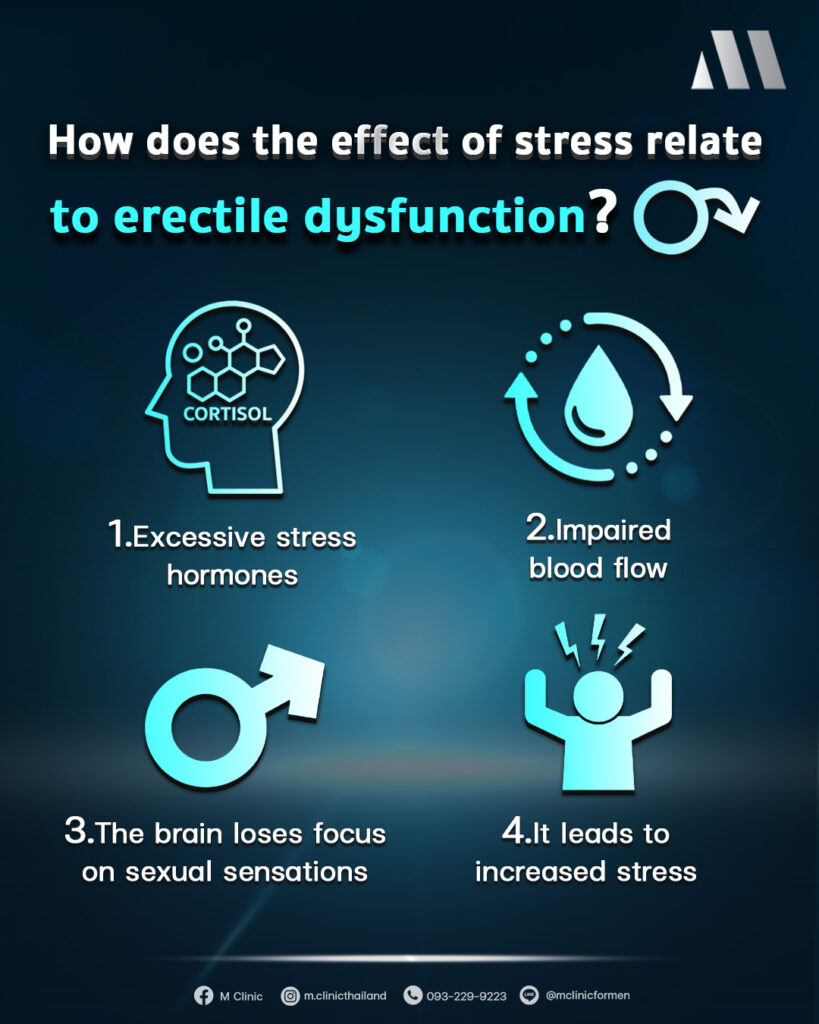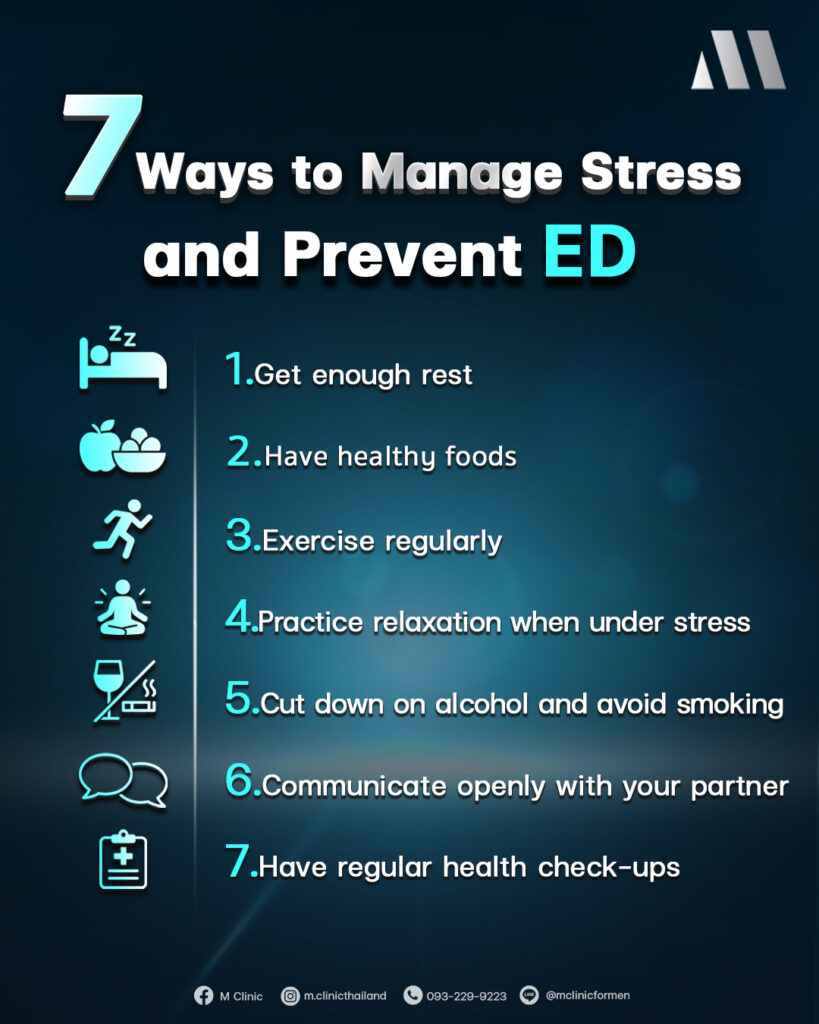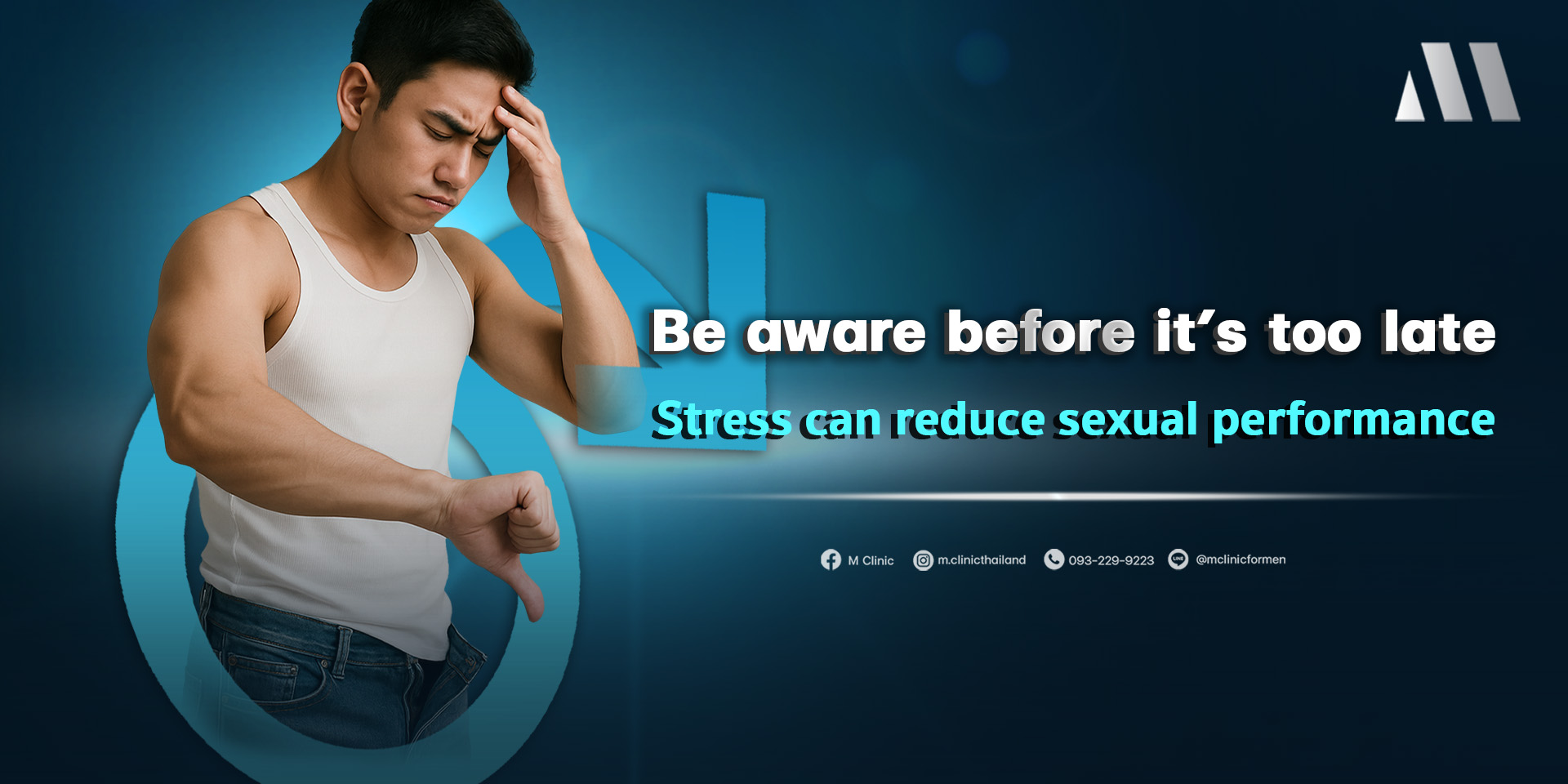Stress and Erectile Dysfunction (ED)
Know it before it’s too late! How stress affects male sexual performance (ED)
Have you ever felt so stressed and drained that you lost motivation — even sexual desire?
Stress is one of the key factors that can gradually diminish confidence and negatively impact men’s sexual health without you even realizing it.
This article will help you understand the connection between stress and erectile dysfunction (ED), how they relate to each other, and what men can do to take care of both their body and mind for better overall well-being.
What is ED (Erectile Dysfunction)?
Erectile Dysfunction, or ED, is a condition where a man is unable to achieve or maintain an erection firm enough for sexual intercourse — simply put, “the man can’t get it up.”
Sometimes, it can happen occasionally due to fatigue, but for some, it becomes a persistent problem that affects self-confidence and relationships.
Many people believe ED only happens to older men, but in reality, younger men under work, financial, or family stress can also develop ED.

How does the effect of stress relate to erectile dysfunction?
The ability to achieve an erection depends on a complex interaction between the nervous system, hormones, blood vessels, and psychological state. All of these must work together for a healthy erection. When stress builds up and becomes chronic, it disrupts these systems in several ways:
1. Elevated Stress Hormones
Chronic stress increases cortisol levels, which suppresses testosterone — the primary male sex hormone. Lower testosterone means lower libido and weaker erections.
2. Poor Blood Circulation
Stress triggers the body’s “fight-or-flight” response — heart rate increases, blood pressure rises, and blood vessels constrict. As a result, blood flow is directed away from the penis toward vital organs, making it harder to achieve or maintain an erection.
3. Disrupted Sexual Focus
When your mind is overwhelmed by anxiety, the brain’s sexual arousal center becomes less active. The production of pleasure-related neurotransmitters like dopamine and serotonin decreases, leading to reduced arousal and sensitivity even with stimulation.
4. The Vicious Cycle of Stress and ED
When men start to experience erection problems, they often become even more anxious, which further worsens the issue — creating a self-reinforcing loop of stress and sexual dysfunction.
Aside from stress, other factors like poor physical health and unhealthy lifestyle habits can also contribute to ED, affecting both physical and mental well-being.
Warning Signs That Stress Might Be Causing ED
- Feeling tired and stressed almost every day, with no energy or motivation.
- Trouble sleeping or frequently waking up at night — poor sleep affects hormone recovery and nerve function.
- Low sexual desire or decreased libido.
- No morning erections — an important sign of sexual health and blood circulation.
- Difficulty maintaining an erection long enough for sex.
- Able to get an erection during masturbation but not with a partner — often linked to psychological stress.
- Anxiety or fear of sexual failure before or during sex.
If several of these symptoms sound familiar, it may be a sign that stress is affecting your body. Start by reducing stress and, if ED continues, consult a doctor to find the root cause — since ED can also be linked to other health conditions like diabetes, hypertension, or heart disease.

7 Ways to Manage Stress and Prevent ED
1. Get Enough Sleep
Quality sleep (7–8 hours per night) restores hormone balance and nervous system function. During deep sleep, testosterone production increases — essential for male sexual health.
2. Have healthy foods
Eat nutrient-rich foods — vegetables, fruits, whole grains, lean proteins, and healthy fats (like fish, avocado, and nuts). These support circulation and cardiovascular health, improving erection quality. Avoid fried, sugary, and high-fat foods that damage blood vessels.
3. Exercise Regularly
Physical activity improves blood flow and releases endorphins — natural “happy hormones” that reduce stress and balance testosterone levels. Both cardio and strength training are beneficial.
4. Practice relaxation when under stress
Don’t let stress accumulate. Try deep breathing, meditation, yoga, or mindfulness exercises to calm the mind and lower cortisol levels.
5. Cut down on alcohol and avoid smoking
Both alcohol and cigarettes harm blood vessels and are leading causes of ED. Reducing or quitting them can greatly improve long-term sexual performance.
6. Communicate openly with your partner
Bottling up stress worsens the problem. Open communication with your partner can reduce pressure and strengthen intimacy. Consulting a healthcare professional or therapist is also a great option.
7. Have regular health check-ups
Since ED can also be linked to chronic diseases like diabetes, high blood pressure, or heart conditions, regular check-ups help detect underlying issues early.
Final Thoughts
Now that you understand how stress and ED are connected, remember — stress is not something men should ignore. It doesn’t only affect your mental and physical health but also your sexual confidence.
If you’re currently struggling with stress and ED, don’t wait until it gets worse. Start taking care of yourself today.
Understanding your body, recognizing stress signals, and managing them properly will help you regain confidence, improve sexual health, and enhance your overall quality of life.

